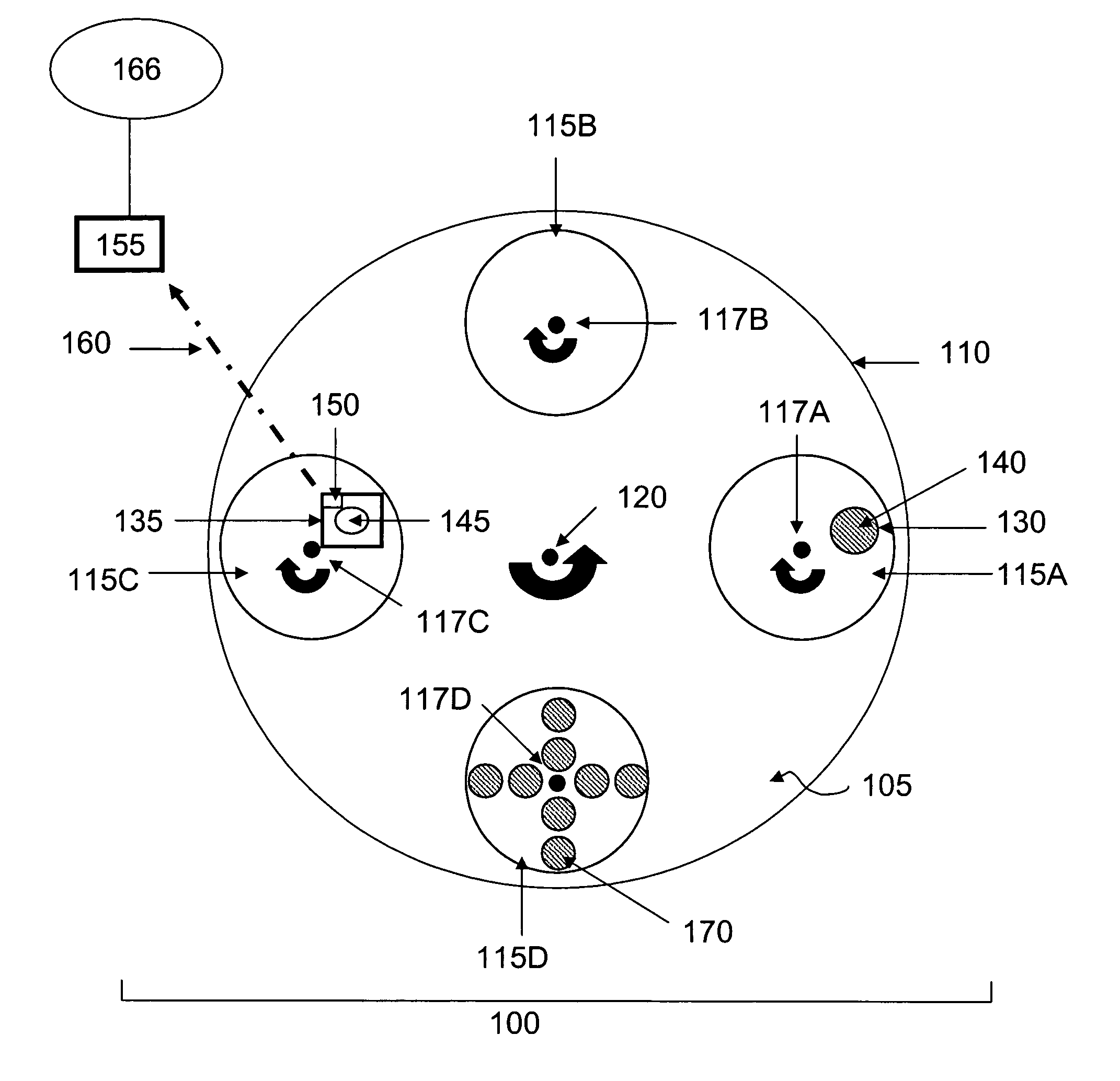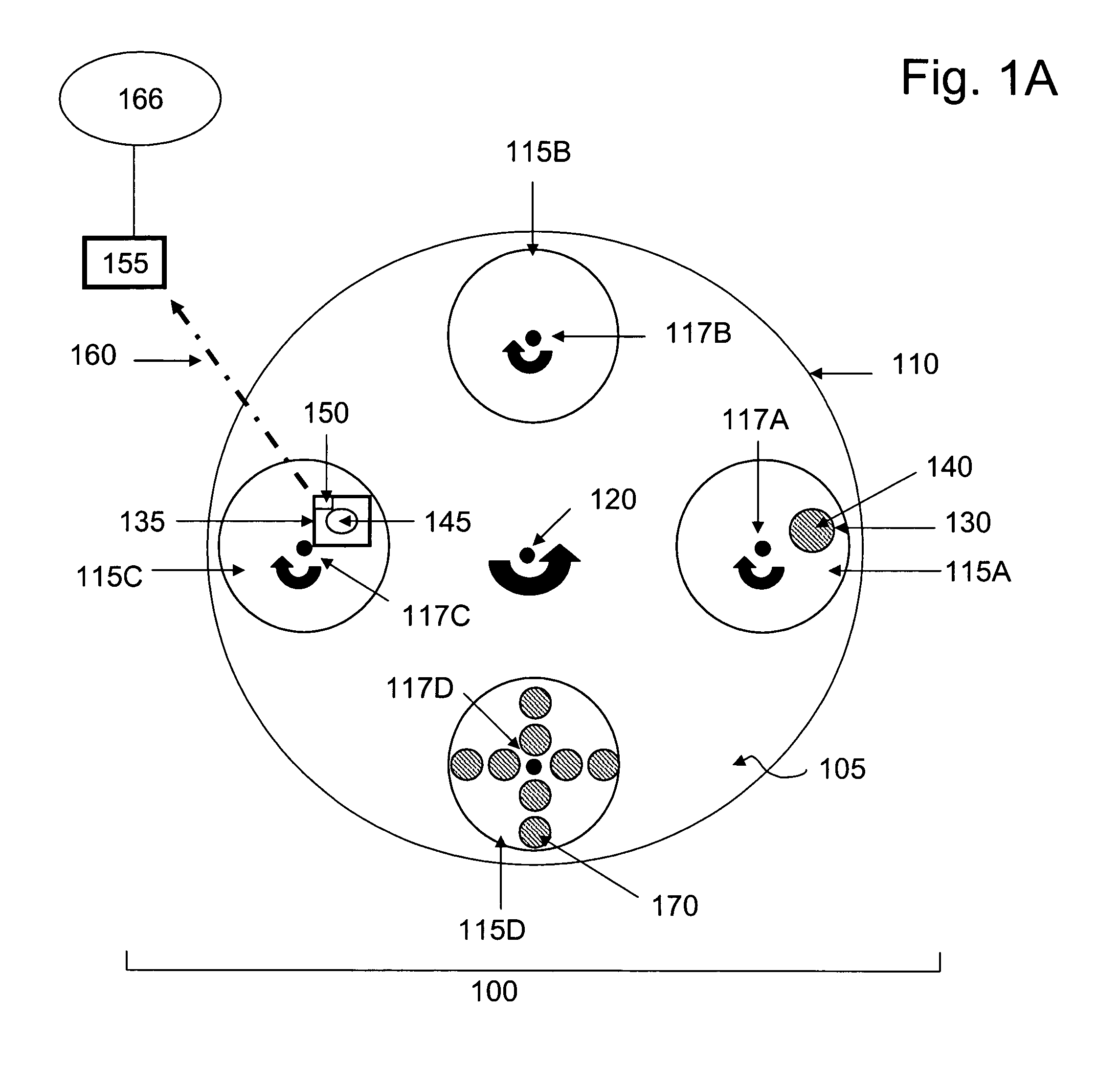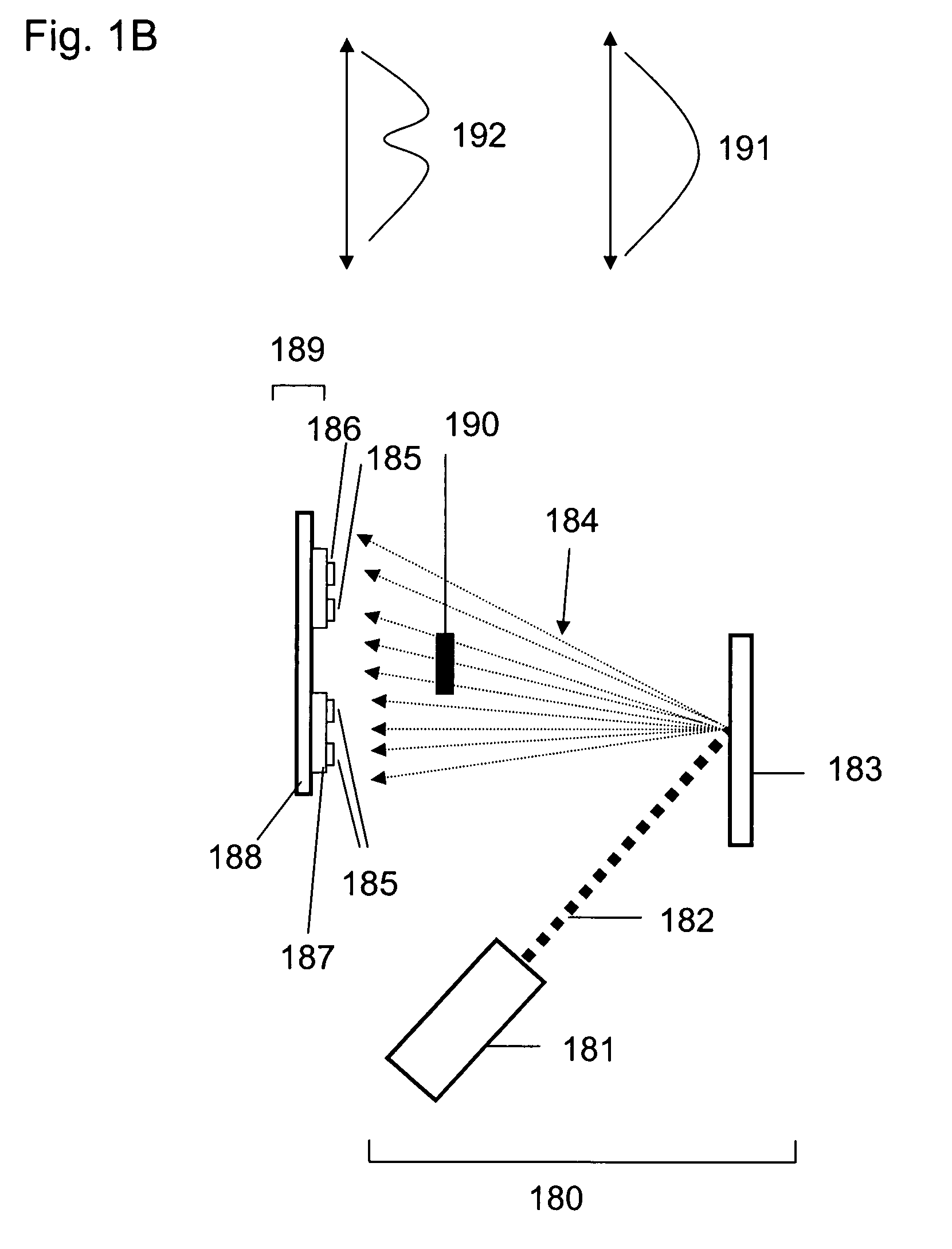Methods and devices for monitoring and controlling thin film processing
a technology of thin film and monitoring device, applied in the direction of vacuum evaporation coating, chemical vapor deposition coating, coating, etc., can solve the problem that the optical monitoring of the deposited layer cannot provide any useful information, the composition or optical properties of the deposited layer cannot be directly measured, and the performance of the device manufactured using thin film deposition methods is impeded. problem, to achieve the effect of reducing process errors, eliminating or reducing process errors
- Summary
- Abstract
- Description
- Claims
- Application Information
AI Technical Summary
Benefits of technology
Problems solved by technology
Method used
Image
Examples
example 1
Film Thickness Monitoring and Control Methods Using an Optical Sensor
[0116]The present invention includes methods and devices having a moving optical sensor that is capable of movement along a trajectory in a flux region of a thin film processing system that is substantially coincident with the trajectories of one or more substrates undergoing translation and / or rotating during thin film processing. FIG. 9A shows a schematic diagram illustrating a moveable optical sensor of the present invention for positioning on a means for translating the sensor in the flux region of a thin film processing system. Moveable optical sensor 700 comprises optical source 705, sensor substrate 710, detector 715, and wireless transmitter 716. Each of these elements are provided in housing element 717, which is capable of integration with a means of translation, such as integration with a sub-planet of a dual rotation planetary system.
[0117]Optical source 705 generates optical beam 706 that is directed o...
example 2
Film Thickness Monitoring and Control Methods Incorporating an SC Cut Quartz Crystal Monitor
[0122]Thin film processing systems and related methods of the present invention having a deposition sensor that moves along a trajectory that is substantially coincident with the trajectories of substrates undergoing processing enables realization of significant further improvements in film thickness control. In one embodiment, thin film processing systems of the present invention further comprise a moveable quartz crystal microbalance deposition sensor having a doubly rotated cut, such as an SC-cut, capable of operation in a manner that is significantly less susceptible to film thickness errors arising from changes in the temperature of the sensor and stress exerted on the sensor by deposited films than conventional AT cut quartz crystal deposition sensors. Use of a moveable SC-cut quartz crystal microbalance deposition sensor capable of movement along a trajectory substantially coincident w...
PUM
| Property | Measurement | Unit |
|---|---|---|
| diameter | aaaaa | aaaaa |
| thickness | aaaaa | aaaaa |
| distance | aaaaa | aaaaa |
Abstract
Description
Claims
Application Information
 Login to View More
Login to View More - R&D
- Intellectual Property
- Life Sciences
- Materials
- Tech Scout
- Unparalleled Data Quality
- Higher Quality Content
- 60% Fewer Hallucinations
Browse by: Latest US Patents, China's latest patents, Technical Efficacy Thesaurus, Application Domain, Technology Topic, Popular Technical Reports.
© 2025 PatSnap. All rights reserved.Legal|Privacy policy|Modern Slavery Act Transparency Statement|Sitemap|About US| Contact US: help@patsnap.com



